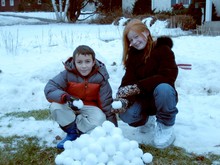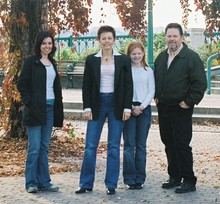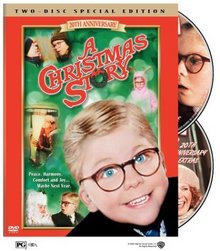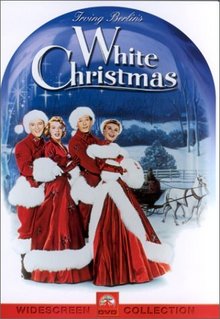| For the next-to-last film in this series for the class of junior high and high school aged boys I departed from the war, western and sports genres for a classic “chick flick”: Sense and Sensibility with Emma Thompson, Kate Winslet, Hugh Grant and Alan Rickman. This dramatic shift in direction led one of the lads to ask, “Are we being punished?” I told them that that wasn’t the case, but there were a number of reasons why I wanted them to learn the lessons within this movie. |  |
For one, I said, the emotional and internal battles fought in this movie, while non-bloody, were every bit as intense and devastating as any war film we’d watched and were far more likely to occur regularly in their own lives than the scenarios in the the so-called “action” flicks. I also wanted them to see examples of the different ways that men and women think and act and the consequences of things said and unsaid. And, I added, “there are going to be times in your life – if all goes well – when you’re going to have to sit through a ‘chick flick’ and this is good practice.”
The story, of course, comes from the Jane Austen book and describes the hardships and romances of two sisters and their mother when the patriarch dies and, by law, his estate goes to his son, the sister’s half-brother from their father’s earlier marriage. While the father made the son promise that the women would be well provided for, the son – influenced by his grasping wife – ends up allocating them a pittance, setting the stage for all that comes after. The two sisters have different outlooks on life and love (the “Sense” and “Sensibility” of the title) and both undergo severe but different trials in the process of getting to the happy ending.
The story is an interesting character study not only of the time period but the way “power” between the sexes is divided and applied. There are heroes and scoundrels among both sexes and while the men supposedly have all the legal power and advantages, the main authority figures driving most plot changes in the movie (in terms of dictating what is going to happen) are women.
While there was some initial grumbling and groaning as the movie started, I soon noticed the boys were rapt in their attention and angered by the outrages and bad behavior, grieved by the near-misses and miscommunications, and, finally, looking around sheepishly at each other by the end of the movie as if afraid to show that they cared how it turned out.
Key Points:
- Emotions are serious matters not to be trifled with.
- The importance of honor and keeping your word, even unto your own hurt.
- Our actions – even when we’re young – can have far-reaching effects on the rest of our lives and on the lives of others.
- Even scoundrels can appear decent and honorable for a time, but substance and integrity (or lack of it) will ultimately be revealed.
- Neither men nor women are inherently noble by reason of birth or their sex, but must make choices.
Some Questions to Answer:
- How did John Dashwood’s behavior at the beginning of the movie set the stage for the rest of the movie?
- Many are harmed when someone doesn’t keep his word. Edward’s decision to keep his word, however, also causes problems. Why?
- Both Edward and Willoughby made decisions when they were younger that dramatically effected their lives later. What were the decisions each made? How did each respond to the consequences of their decisions?
Why does Marianne reject Col. Brandon initially? What does she come to value in him eventually? - What did Col. Brandon mean when he (speaking to Miss Dashwood) said Edward was “proud, in the best sense.”
- Contrast the way Willoughby would talk about Brandon when he wasn’t present to the way Brandon spoke of Willoughby – even after describing him as “the worst of libertines.”
Points to Ponder:
- Who has he power in the movie – the men or the women? Why?
- Was Lucy Steele really in love with Edward Ferrars?
- Who was “Sense” and who was “Sensibility”? What is the difference?
- Which character in the movie do you think is the most like you? Why?
















